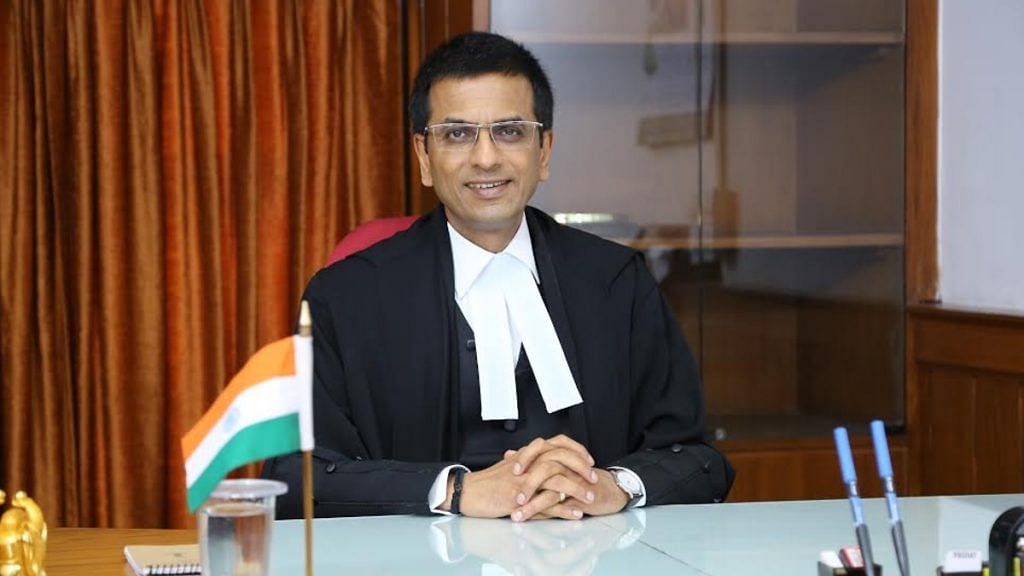New Delhi: Castelessness is a privilege only the upper castes can afford, Supreme Court judge Justice D.Y. Chandrachud said Monday.
“A similar analysis also holds true for India, where castelessness is a privilege that only the upper caste can afford, because their caste privilege has already translated into social, political and economic capital,” he said.
“On the other hand, individuals who belong to the lower caste have to retain their caste identity in order to claim the benefits of measures such as reservation, which are in themselves a recognition of a historic harm,” the judge added.
Justice Chandrachud was speaking at the 13th B.R. Ambedkar Memorial Lecture, 2021 on ‘Conceptualising Marginalisation: Agency, Assertion & Personhood’ organised by the Indian Institute of Dalit Studies, Delhi, and Rosa Luxemburg Stiftung, South Asia.
Former UGC chairman and Chairman of Indian Institute of Dalit Studies Prof. Sukhadeo Thorat chaired the event and delivered the welcome speech.
Justice Chandrachud also asserted that “while the professional achievements of upper caste individuals are enough to wash away their caste identity, this can never be true for lower caste individuals.”
“When a young Dalit homosexual woman is denied respect, she is humiliated for a feature of hers that she has no control over, unlike her nature or professional losses. When she is losing respect in the eyes of others over an attribute that she has no control over, she distances herself from her metaphysical being,” he added.
Also read: Karva Chauth ad withdrawn due to ‘public intolerance’, Justice Chandrachud says
‘Discriminatory pattern continues’
In his speech, Justice Chandrachud spoke about marginalisation, about members of marginalised sections of the society, “their struggles, loss of agency and personhood”.
He said that while we gave ourselves a Constitution 72 years ago, it was only in 2005 that women by birth became a coparcener (equal share in inheritance) in their own right, and it was only in 2018 that homosexuality was decriminalised.
“Thus, for nearly half a century of the Constitution’s existence, a group of persons was denied its rights as equal members of this country,” he added.
He highlighted the fact that even if a discriminatory law is held unconstitutional by the courts, or is repealed by Parliament, “the discriminatory behavioural pattern is not immediately overturned”.
He referred to judgments like those allowing permanent commission to women Army officers and decriminalising consensual homosexual acts, but said that “their impact on the society continues to be limited”.
He further said that while there are multiple positive rights for marginalised communities in our Constitution, it has “not always led to a positive change in the society’s perception of these marginalised groups and the individuals who belong to them”.
“It is necessary that the privileged members of the society break free from the shackles of the past, and confer respect and recognition to the members of marginalised communities,” Justice Chandrachud added.
He ended his speech by quoting Dr B.R. Ambedkar and asserting that while combating marginalisation is no easy task, “the only recourse available to us is to faithfully abide by and give life to the constitutional ideals which Dr Ambedkar helped formulate, and use those to bring transformative change in the minds and perceptions of the society.”
(Edited by Saikat Niyogi)
Also read: ‘Democracy needs truth to survive’ — full text of Justice Chandrachud speech
